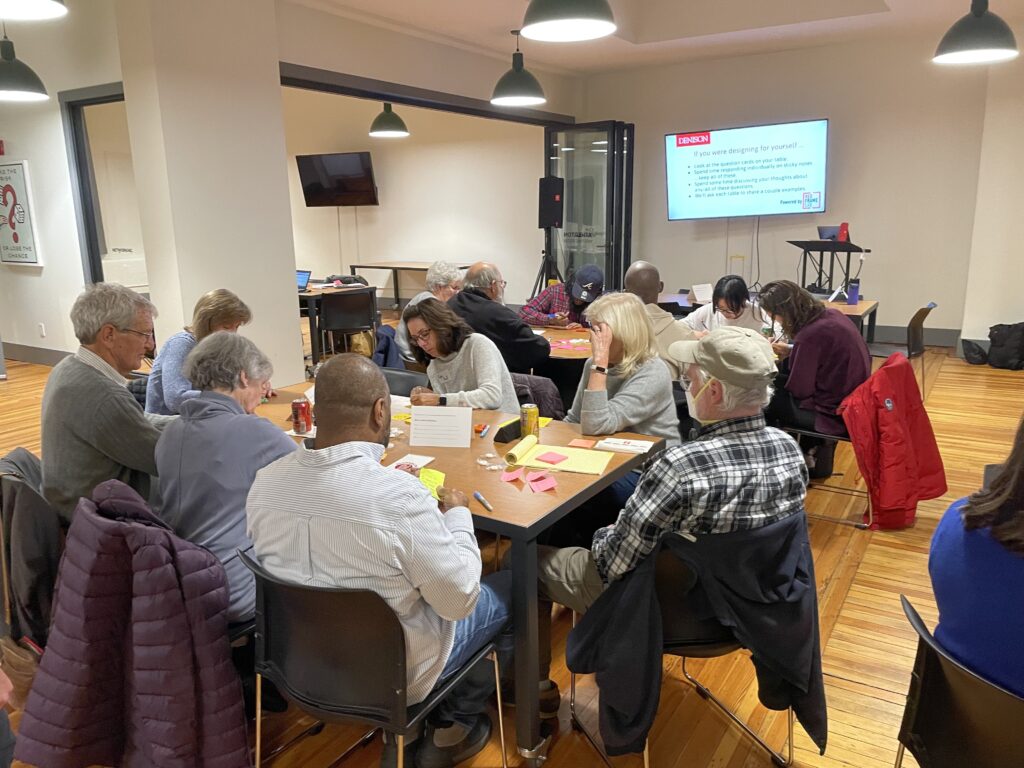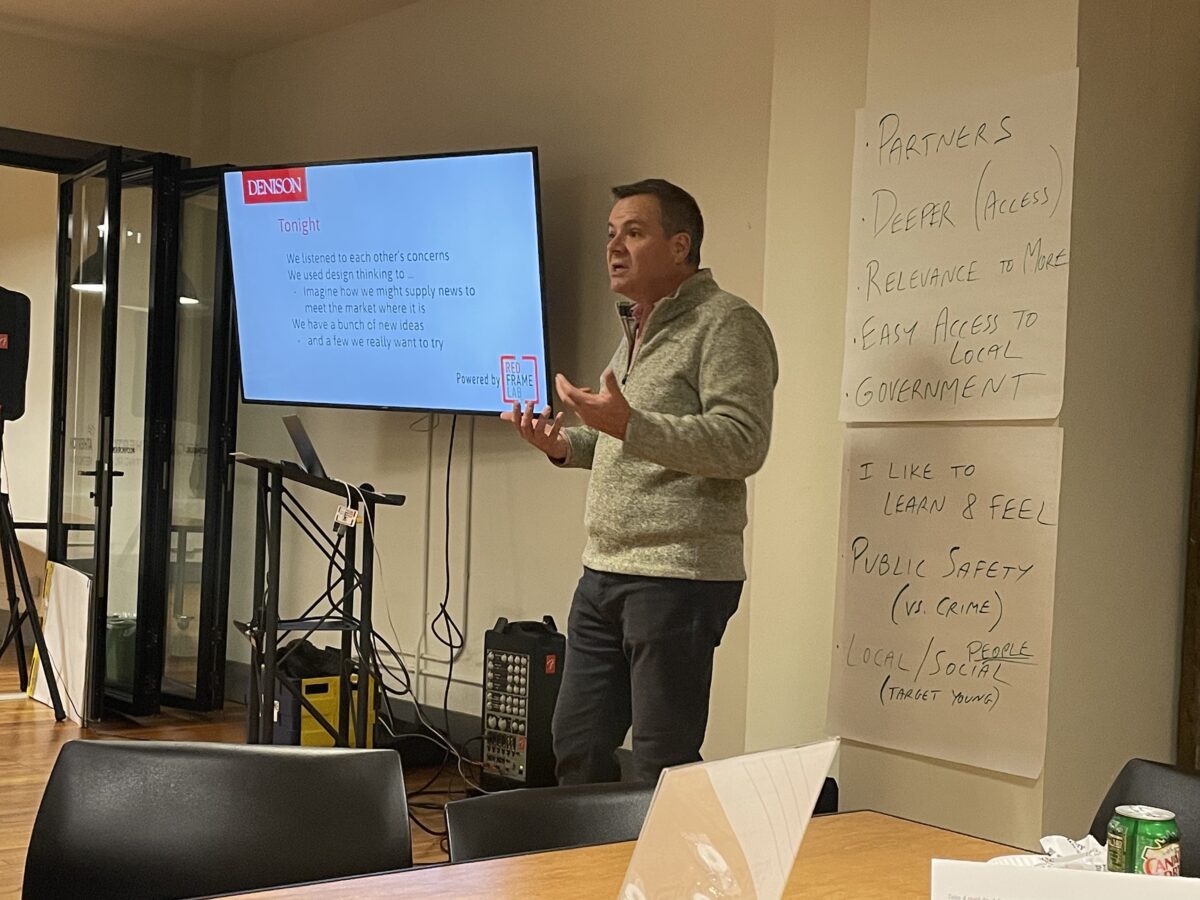When they dream about the best they could hope to find in local news coverage, Licking County residents have a long wish list.
“I wish to see fearless investigators report vital problems this community is facing,” wrote one person who took part in the second community conversation about the future of local news coverage in Licking County.
Another wished that “there were more investigative and critical stories covering local issues,” such as local government, the Intel microchip manufacturing campus, and commercial development of rural areas.
Several others among the 40 people who attended the forum on Nov. 15 at NEWORK Space, 14 N. Park Place, in downtown Newark, said they simply wish they had more local news. More of everything.
Forums in October and November were hosted in Newark by the TheReportingProject.org, the nonprofit news organization of the Journalism program at Denison University, and included journalists from local media, including The Advocate, Granville Sentinel, Pataskala Standard, and WNKO radio.

“We all need you,” said Alan Miller, who opened the forum. The former Columbus Dispatch editor, who teaches journalism at Denison, said, “We need your help in prioritizing where we focus our limited resources so that we provide as much news and information as possible, and that it’s relevant to your daily life.”
He said the journalists want to do their best to serve the community, which is also their home. “We, the journalists in the room, live, work and shop here, and we care about the quality of life here for everyone.
“And as we discussed last month, community is at the core of this conversation,” Miller said. “A shared source of news and information can be the glue that holds a community together, and we seek to gain more of that glue.”
Forum participants said they wished for “more collaboration between community and journalism,” for “more objectivity,” and that “people would value local news similarly to national news.”
Some want “to see more solutions to the issues of our communities,” and “to better understand how decisions are made in my community,” and to have “an easy way to contribute info to the local news.”
Facilitated by Steve Krak, of Denison’s Red Frame Lab, the conversation on Oct. 10 focused on people in Licking County who might want or need access to local news but find it difficult to overcome barriers to the news, such as cost, lack of time, or lack of awareness about where to go for information.
The Nov. 15 forum continued that conversation by asking participants to brainstorm ways local journalists can help remove barriers and reach the audiences identified in the October conversation.
Krak asked participants to use “design thinking,” a process in which they visualize an audience or customer and brainstorm how best to create a product that best meets the needs and desires of that audience – in this case, a news source.
In small groups, the participants collaborated on ideas and made pitches to the entire group.
One group suggested creating a quick-hit news podcast that provides the top daily news stories on demand.
Another suggested developing an app that features different ways to tell local stories – text, video, audio and animation. And make it interactive.
Yet another group said to focus on a nonprofit model in which journalism is viewed, funded and operated as a community public service.
And a group suggested providing the news for free and using local news influencers on social media to inspire people in Licking County to consume local news.
Inspired by alternative weeklies, a group suggested using a digital platform to be a one-stop shop for meetings and events in the county. Another offered a similar suggestion more specifically to make The Advocate newspaper and its website the to-go source for community information and news.
In wrapping up the November forum, Miller said that take-aways for the journalists in the room are that they would “use what you’ve told us to set priorities for funding and staffing, keep the conversation going in the future, perhaps with email newsletters and future forums,” and possibly develop a program to train interested residents to observe meetings of local public officials and report what happens during them.
One participant summed it up this way: “I need to have my finger on the pulse of the truth.”
TheReportingProject.org is the non-profit news organization of the Denison University Journalism program, and it is funded in part by the Mellon Foundation.

